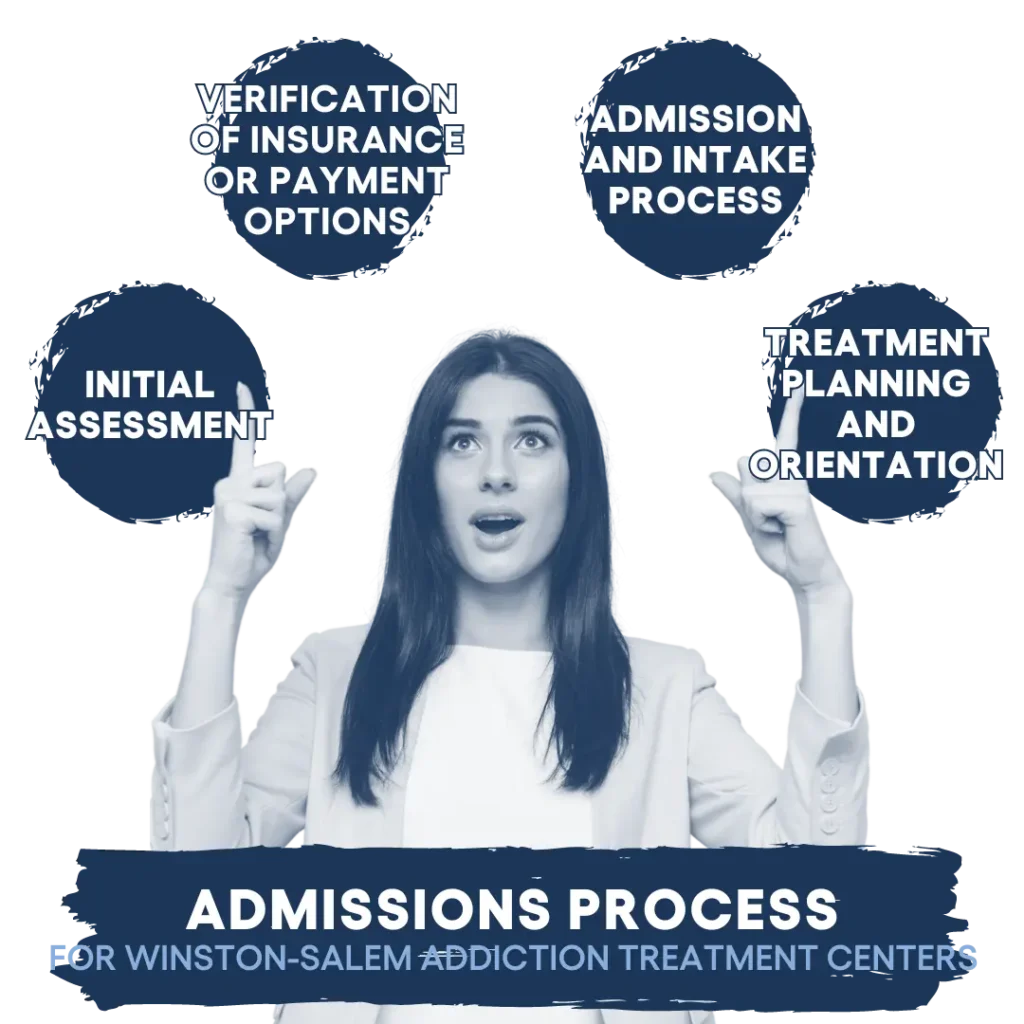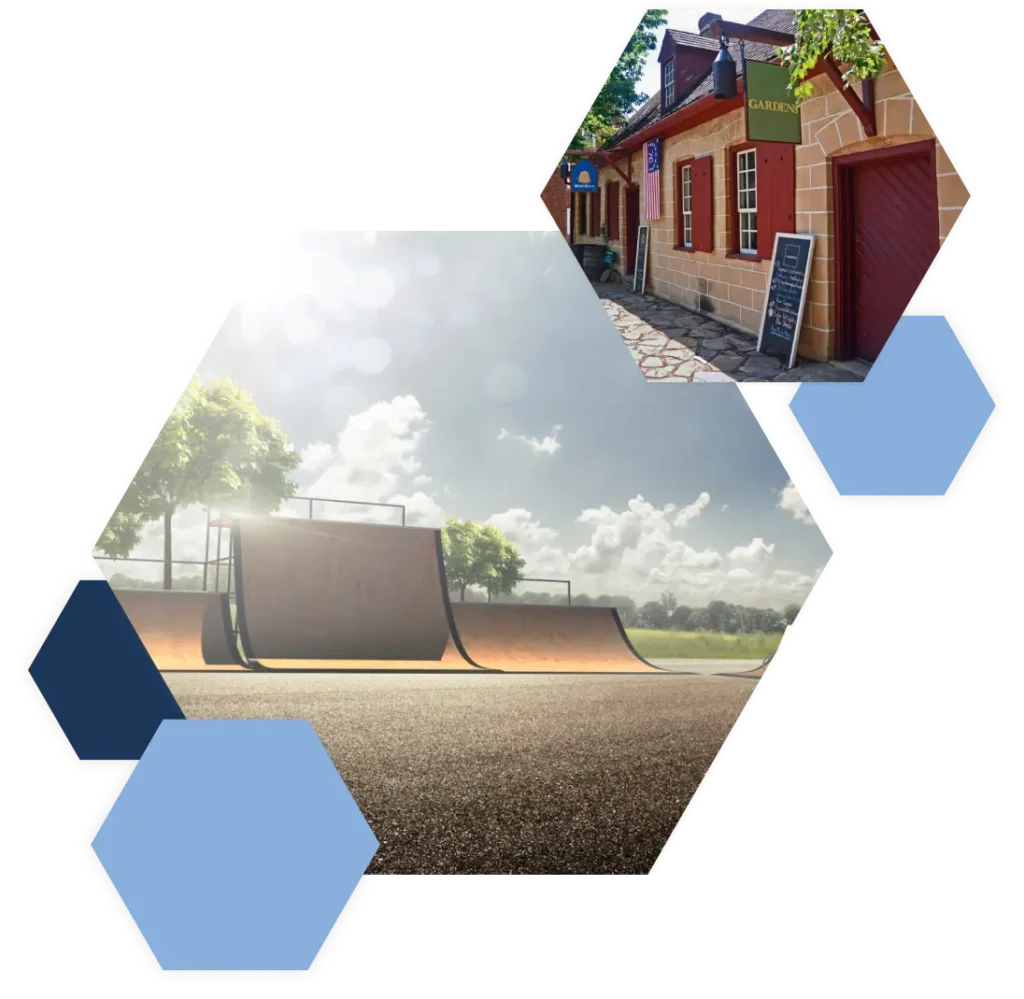If you are in the Winston-Salem area and need help with drug and alcohol addiction – call (704) 248-8561.

Winston-Salem, North Carolina, is geographically located in the center of the state – but is best known as the birthplace of Krispy Kreme donuts and as the “twin city” thanks to its hyphenated name. Like many other highly populated cities, Winston-Salem faces struggles with drug and alcohol addiction and mental health disorders. These addictions and disorders span several diagnoses, ranging in type and severity, including depression, anxiety, PTSD, bipolar, and drug and alcohol addiction.
A variety of substance abuse treatment options are available in Winston-Salem – offering help with drug and alcohol addiction and mental health disorders in the area. These Winston-Salem drug treatment centers offer guidance, provide access to community-based support, have different program opportunities, and so much more to help anyone who wants to achieve and maintain long-term sobriety.
In Winston-Salem, NC, there are a variety of addiction treatment options available for anyone looking for help with substance abuse and mental health disorders. To find the right program, it is essential for anyone seeking addiction treatment to assess their needs, preferences, and the level of support they require when choosing the best option. Consulting with medical professionals or addiction specialists can help guide you in selecting the most effective facility and treatment plan.
These treatment options may include:
Inpatient Rehabilitation Centers: These facilities provide intensive treatment for individuals with severe addiction. Patients reside at the facility for a specified period, typically ranging from 28 days to several months, and receive therapy, medical care, and support in a controlled environment.
Outpatient Treatment Programs: Outpatient programs offer flexibility for individuals who cannot commit to residential treatment or have completed inpatient rehabilitation. Patients attend therapy sessions, counseling, and support groups while living at home.
Detoxification Programs: These programs help individuals safely withdraw from drugs or alcohol under medical supervision. Medical professionals monitor patients for withdrawal symptoms and provide medications to manage discomfort.
Medication-Assisted Treatment (MAT): MAT combines medication with behavioral therapy to treat substance use disorders effectively. Medications such as methadone, buprenorphine, or naltrexone may be prescribed to help reduce cravings and withdrawal symptoms.
Counseling and Therapy: Individual and group counseling sessions help individuals address underlying issues contributing to addiction. Therapy techniques may include cognitive-behavioral therapy (CBT), dialectical behavior therapy (DBT), or motivational interviewing.
Support Groups: Support groups like Alcoholics Anonymous (AA) or Narcotics Anonymous (NA) provide peer support and encouragement for individuals in recovery. These groups offer a sense of community and accountability.
Dual Diagnosis Treatment: Many addiction treatment centers in Winston-Salem also address co-occurring mental health disorders alongside substance abuse. Dual diagnosis treatment integrates therapy for both conditions to promote comprehensive recovery.
Holistic Therapies: Some treatment centers offer holistic approaches such as yoga, meditation, acupuncture, or art therapy to complement traditional addiction treatment methods and promote overall well-being.
Aftercare and Relapse Prevention: Ongoing support is crucial for maintaining sobriety after completing formal treatment. Aftercare programs provide continued counseling, support groups, and resources to help individuals navigate challenges and prevent relapse.
When trying to find the right drug treatment center in Winston-Salem, NC, it is important to consider a few things to ensure that you or your loved one receives effective and comprehensive care. These factors will help you make sure that the decision you make is the right one for you – aligning with your needs and priorities for recovery.
Here are ten essential things to look for:
1. Accreditation and Licensing:
Ensure the facility is accredited by reputable organizations such as the Joint Commission or CARF (Commission on Accreditation of Rehabilitation Facilities) and licensed by the state of North Carolina. Accreditation ensures that the center meets high standards of care and safety.
2. Evidence-Based Treatment Approaches:
Look for a treatment center that offers evidence-based therapies and practices proven to be effective in treating addiction, such as cognitive-behavioral therapy (CBT), motivational interviewing, and medication-assisted treatment (MAT).
3. Experienced and Qualified Staff:
Research the qualifications and experience of the treatment center’s staff, including therapists, counselors, and medical professionals. Ensure they are licensed, certified, and experienced in treating addiction and any co-occurring mental health disorders.
4. Individualized Treatment Plans:
Seek a facility that offers personalized treatment plans tailored to each patient’s unique needs, preferences, and circumstances. Individualized care ensures that treatment addresses specific challenges and promotes long-term recovery.
5. Comprehensive Assessment and Diagnosis:
The treatment center should conduct thorough assessments to evaluate the extent of addiction, any underlying mental health issues, and other factors that may impact treatment. A comprehensive diagnosis ensures that treatment is targeted and effective.
6. Continuum of Care:
Look for a treatment center that provides a continuum of care, including detoxification, residential or outpatient treatment, aftercare, and relapse prevention services. Continuity of care ensures a seamless transition between levels of treatment and ongoing support for sustained recovery.
7. Family Involvement and Support:
Family involvement is often integral to the recovery process. Choose a treatment center that offers family therapy, education, and support programs to help loved ones understand addiction, heal relationships, and participate in the recovery journey.
8. Dual Diagnosis Capabilities:
Many individuals with addiction also struggle with co-occurring mental health disorders such as depression or anxiety. Ensure the treatment center has expertise in addressing dual diagnosis and offers integrated treatment for both addiction and mental health issues.
9. Amenities and Environment:
Consider the facility’s amenities, accommodations, and environment. A comfortable, supportive, and therapeutic setting can contribute to the overall well-being and success of individuals in treatment.
10. Success Rates and Reviews:
Research the treatment center’s success rates, testimonials, and reviews from former patients and their families. While success rates may vary, positive feedback and outcomes can provide insight into the quality of care and the center’s reputation.

Getting sober without help can be a struggle, and finding the right resources in Winston-Salem can make all the difference in your sobriety. To help anyone looking for addiction treatment or mental health help, there are a few resources that may help get you started on your journey:
North Carolina Department of Health and Human Services – State website offering resources for mental health, substance addiction, and more.
Southeastern Recovery Center – Drug and Alcohol Addiction Treatment
SAMHSA National Helpline – Confidential, free help from public health agencies to find more information on addiction and mental health resources.

Understanding local statistics about drug and alcohol addiction gives crucial insights into how it affects the community. The data helps inform policymaking, guide the allocation of resources, and shape community-based interventions to fight addiction-related challenges in Winston-Salem.
The average number of drug overdose deaths among North Carolina residents reached nine per day in 2020, marking a 40% increase from 2019, according to the North Carolina Department of Health and Human Services. This increase in fatalities is attributed to illicit opioids like heroin and fentanyl, with 60% of these deaths involving multiple substances – the trend is only increasing.
By 2021, drug overdose fatalities across the state rose 72% over a two-year period, raising the daily average to 11 deaths per day compared to the previous year. Mental health disorders also saw a dramatic increase, with anxiety and depression rates among residents increasing from 11% to 41% between 2019 and 2021.
Say hello to a new sober lifestyle! The admissions process for a Winson-Salem drug and alcohol rehabilitation center may vary based on the procedures of the facility, but in general, you can expect the following four steps:

The first step for anyone seeking treatment is to undergo an initial assessment. This assessment may involve a phone call or an in-person meeting with an admissions counselor or intake coordinator. During this assessment, the individual will be asked about their history with substance use, medical history, mental health concerns, and any previous treatment experiences. The goal of this assessment is to gather information to determine the most appropriate level of care and treatment plan for the individual.
After the initial assessment, the admissions team will assist the individual in verifying their insurance coverage or exploring other payment options. They will work with the individual to understand their financial situation and determine the best way to cover the cost of treatment. If the individual has insurance coverage, the admissions team will coordinate with the insurance provider to determine coverage for substance abuse treatment services.
Once insurance coverage or payment arrangements have been confirmed, the individual will proceed with the admission and intake process. This usually involves completing paperwork, signing consent forms, and providing necessary personal information. The admissions team will also provide the individual with information about what to expect during their time in treatment, including rules and expectations, daily schedules, and available support services.
After completing the admission and intake process, the individual will meet with a skilled treatment team to develop a personalized treatment plan. This treatment plan will outline the individual’s goals for recovery, as well as the specific therapies and interventions that will be used to achieve those goals. The individual will also go through orientation to the rehab facility, including a tour of the premises and an introduction to staff members and fellow clients.
Alcoholics Anonymous (AA) and Narcotics Anonymous (NA) meetings can be a lifeline when overcoming addiction in Winston-Salem. These meetings offer a safe, confidential space where individuals struggling with addiction can open up about their struggles, accomplishments, and more with others who are going through the same thing.
These meetings are based on a 12-step program, which gives attendees practical tools to stay sober and rebuild their lives. It’s not just about the steps, it is about finding people who understand and support you on your sobriety journey. AA and NA offer a sense of community and connections with others who have had the same struggles – providing understanding, support, and coping skills when they are needed most.
To find local meetings, call 800-681-2956 – or check out a list below to get started.
To find local meetings (in-person and virtual), click here – or check out the list below.
Getting sober doesn’t mean you can’t have fun, and in Winston-Salem, there are plenty of activities you can do while maintaining your sobriety. Taking the family to explore the outdoors, finding solace in an art exhibit, or experiencing cultural events are great ways to have fun and remain sober. Staying active can help promote social interaction and enhance your overall well-being during recovery.
Here are some sober activities you can do in Winston-Salem:

Paying for addiction treatment in Winston-Salem can be a concern for many individuals and families, but there are several options available to help cover the costs. It’s important to explore all available options and resources for financing addiction treatment in Winston-Salem to ensure that individuals receive the help they need to overcome substance abuse and achieve lasting recovery.
There are several options available to help cover the costs, including:
Many health insurance plans provide coverage for addiction treatment services, including detoxification, residential treatment, outpatient therapy, and medications. Contact your insurance provider to inquire about coverage options and benefits related to addiction treatment.
Individuals who qualify for Medicaid or Medicare may be eligible for coverage of addiction treatment services. These government-funded healthcare programs offer varying levels of coverage for substance abuse treatment, depending on the state and individual circumstances.
North Carolina offers state-funded addiction treatment programs for individuals who meet specific eligibility criteria, such as income level or residency requirements. These programs may provide free or low-cost treatment services to those in need.
Some addiction treatment centers in Winston-Salem offer sliding scale fees based on income and ability to pay. This means that the cost of treatment is adjusted according to the individual’s financial situation, making it more affordable for those with limited resources.
Many employers offer EAPs, which provide confidential assistance to employees struggling with personal issues, including substance abuse. EAPs may offer referrals to addiction treatment resources and financial assistance for treatment services.
Some addiction treatment centers may offer financing plans or payment arrangements to help individuals afford the cost of treatment. These plans allow patients to pay for treatment over time, making it more manageable financially.
In some cases, individuals and families may turn to crowdfunding platforms or organize fundraising events to raise money for addiction treatment expenses. This approach involves reaching out to friends, family members, and the community for financial support.
There are nonprofit organizations and charitable foundations that provide financial assistance for addiction treatment to individuals in need. These organizations may offer grants, scholarships, or other forms of support to help cover treatment costs.
Winston-Salem offers a range of addiction treatment programs, including inpatient rehabilitation, outpatient treatment, detoxification services, medication-assisted treatment, counseling, and support groups.
It's essential to consider factors such as the severity of addiction, personal preferences, treatment goals, and any co-occurring mental health disorders. Consulting with healthcare professionals or addiction specialists can help assess individual needs and recommend appropriate treatment options.
Addiction treatment typically involves an initial assessment, detoxification (if needed), therapy and counseling sessions, medication management (if applicable), and aftercare planning. The specific treatment process may vary depending on the type of program and individual needs.
The duration of addiction treatment varies depending on factors such as the severity of addiction, treatment progress, and individual circumstances. Treatment programs may last anywhere from a few weeks to several months, with options for both short-term and long-term care.
Many health insurance plans provide coverage for addiction treatment services, including detoxification, residential treatment, outpatient therapy, and medications. It's essential to check with your insurance provider to understand your coverage options and benefits.
After completing addiction treatment, individuals may transition to aftercare programs, support groups, or outpatient therapy to maintain their recovery progress. Aftercare services help individuals develop coping skills, prevent relapse, and integrate back into their communities.
You can find more information about addiction treatment resources in Winston-Salem by contacting local treatment centers, healthcare providers, community organizations, or helplines such as the Substance Abuse and Mental Health Services Administration (SAMHSA) National Helpline (1-800-662-HELP). Additionally, online resources and directories can provide information about available services and support options in the area.
